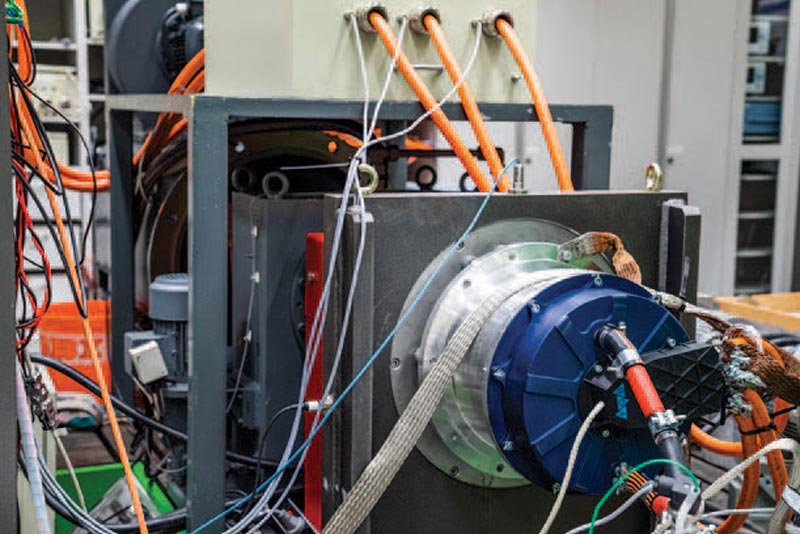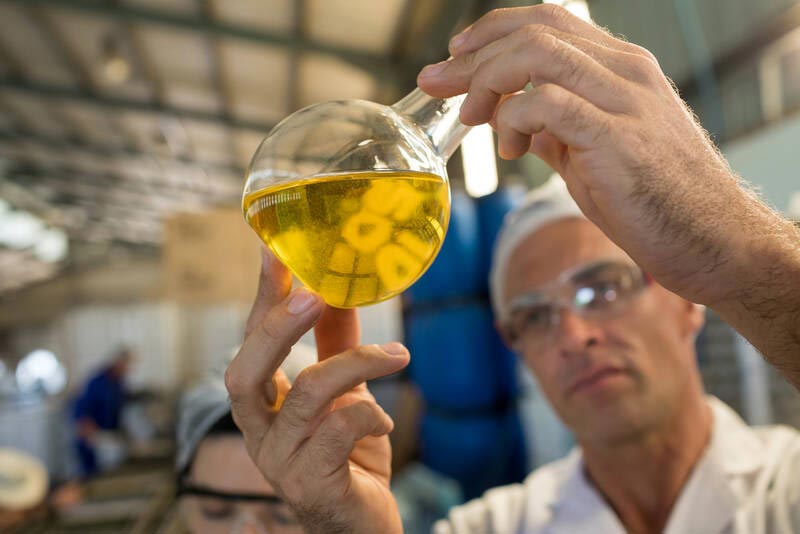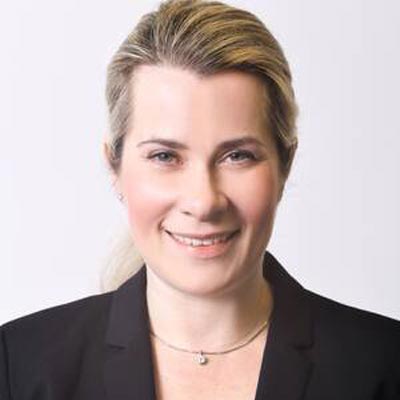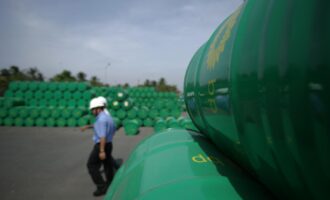
Changing regulations provide market opportunities for FRAGOL
If we are serious about minimising greenhouse gas (GHG) emissions and tackling the forthcoming climate emergency, then no stone can be left unturned. A shift away from fossil fuels has begun, and we are witnessing an upsurge in electrification. However, until now, electrical motors have been cooled with the help of halogenated liquids which form hazardous decomposition products, says Iris Zerfass, CEO of family-owned and -operated company FRAGOL AG.

Very low flammability makes these products attractive for use in such applications. Though, the use of halogenated fluids releases fluorinated gases (F-gases) that have a high potential for global warming and can destroy the earth’s protective ozone layer. F-gases can stay in the atmosphere for centuries. They are receiving mounting criticism and may be banned in Europe in the next couple of years, says Zerfass.
Located in Mülheim, Germany, FRAGOL has been involved in individual product development for industrial lubricants for almost 60 years. Zerfass joined FRAGOL in 2013, bringing extensive management experience from international consulting firm Deloitte.
Looming regulations present market opportunities for companies that move swiftly. In October, FRAGOL launched FRAGOLTHERM® E-Coolant, an alternative to conventional halogenated cooling liquids that include none of the climate and health-damaging properties. The electronic liquid is an inert, environmentally friendly synthetic heat transfer fluid based on silicone oil. It features a high flash and boiling point, and low working temperature. The term silicone oil is commonly used to describe polydimethylsiloxanes. Silicone oils offer a very wide temperature range, says Zerfass, and viscosity is less temperature-dependent than mineral oils and synthetic aromatic heat transfer fluids.
Broad range of electronic applications

FRAGOLTHERM® E-Coolant can be used in a broad range of electronic applications without the disadvantages of traditional cooling fluids. The E-coolant is designed for both industrial or automotive use, with particular application in testing stands for electric engines or generators, says Zerfass. The launch of this product is a good example of a company identifying market opportunities with impending changes to — in this case, German and European Union – hydrofluorocarbon (HFC) regulations. HFCs are the most common F-gases. HFC emissions, excluding HFC-23 by-product, currently account for around 1% of global greenhouse gas emissions and as much as 3% in many developed countries, according to the International Energy Agency (IEA). If left unchecked, these emissions will increase to 7-19% of all greenhouse gas emissions by 2050 and offset most if not all mitigation actions pledged by countries to date.
FRAGOL was founded in 1962. Originally, it was the mineral oil department of German chemical distribution company, Brenntag, before transitioning to joint ownership between Brenntag and Total (now TotalEnergies). German lubricant manufacturer Fuchs bought Total’s 50% share in FRAGOL in 1999. Dr. Heiner Müske, Iris’ father, became managing director of the company in 1985. In 2004, he initiated a management buyout, transforming FRAGOL into a family-owned and operated business — with no shareholder pressure. He stepped down as CEO last year but remains as a senior consultant.
At the time, FRAGOL’s main business was the trading of gasoline and gasoil. The organisation was a key supplier to the coal mining industry. With a shrewd eye, Müske restructured the business for the future, stripping the company down to two key business areas — industrial lubricants and heat transfer fluids. The pivot from a commodity lubricant business into a specialty business has been a successful one. While Zerfass acknowledges there is little synergy between the two business units, there are lots of international potential, she says.
Asset light
Originally, FRAGOL owned many of its assets. Now, five different production sites in Germany and France are outsourced. The company’s strategy is to focus on what they are good at, says Zerfass. We are a technology company, she says. We’re not experts in production and blending — so we have partners who are experts in that business, she says. The company’s approach is to stay slim, working with partners due to the size of their portfolio and the range of different chemistries. Though, Zerfass concedes they have purchased a new filling plant.

In 2006, FRAGOL became the authorised distributor of Anderol Lubricants in Germany and Austria. Typically, these oils and greases are preferred where machine and oil are exposed to difficult operating conditions. The portfolio includes lubricants for selected applications in the areas of hydraulics, gearboxes, compressors, and vacuum pumps.

FRAGOL understands their niche. “We don’t sell a product, we supply solutions for applications,” says Zerfass. We will never be the biggest or the one who’s got all the products anybody needs, she says. However, FRAGOL aims to be the most important supplier in dedicated areas with a focus on high-quality products, technical competence, and accessibility. 30% of staff work in R&D and 50% of salespeople are chemists, she says, including Madlin Stotz, who developed FRAGOLTHERM® E-Coolant 80.
FRAGOL continues to look to the future for niche opportunities. Our focus is increasingly on green energy, says Zerfass. The company no longer supplies fluids for the coal mining industry. Coal mining was at one time an important industry in Germany, but today, Germany imports its coal. While their environmentally friendly E-coolant is only one product at this stage, it has very low viscosity, and the density is also a big advantage. Zerfass emphasised plans to expand the range to offer different viscosities. FRAGOL anticipates the entire market will be forced to switch from halogenated products at some stage in the near future.
The German company also offers the widest portfolio of heat transfer fluids in Europe for a temperature range of between –110 °C and 430 °C. While FRAGOL mostly targets Germany and Europe, Zerfass indicates the company has started to grow internationally.







